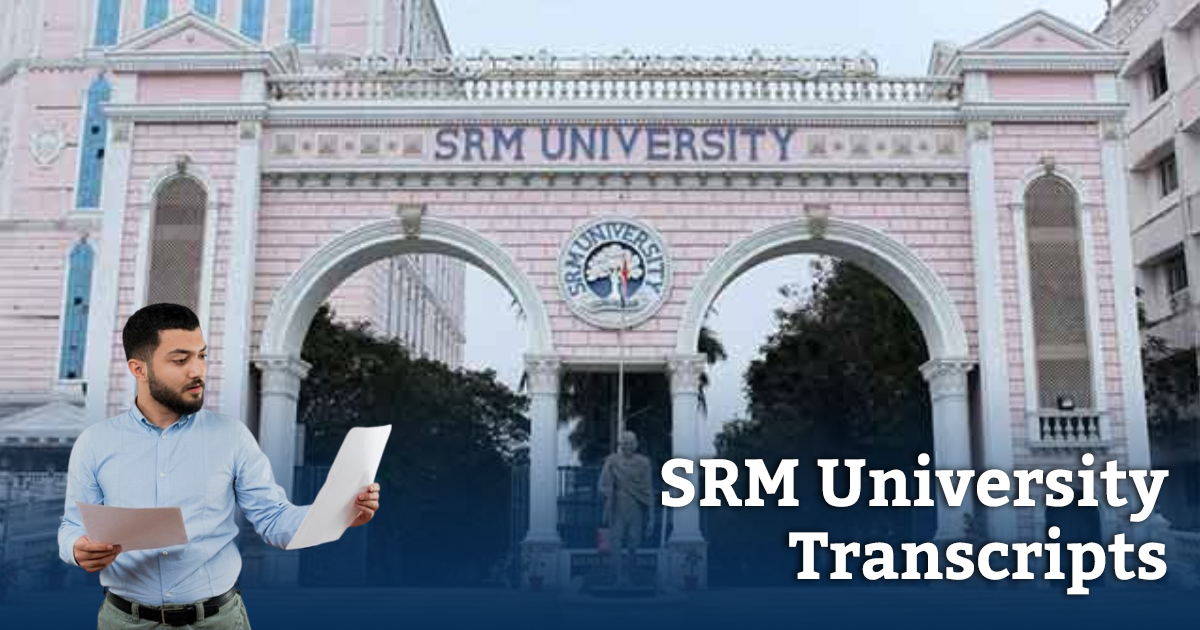by World Document Services | Apr 26, 2024 | Transcripts from University

Streamlining Your BPUT Transcript Process with World Document Services
Biju Patnaik University of Technology (BPUT), nestled in the vibrant state of Odisha, India, has been a cornerstone of technical and management education since its inception. As a hub of academic excellence, BPUT offers a plethora of undergraduate, postgraduate, and doctoral programs across various disciplines, catering to the aspirations of thousands of students.
Need help with your BPUT Transcript? Contact Us Now!
Odisha: A Cradle of Education and Culture
Odisha, with its rich cultural heritage and historical significance, is also home to BPUT, making it a preferred destination for students seeking quality education in engineering, architecture, business management, and more. The state’s commitment to educational excellence is mirrored in the university’s ethos, which aims to foster innovation, research, and professional competency.
Read more: Navigating the Process of Document Apostille in India for Higher Education Abroad
Academic Endeavors at BPUT
BPUT prides itself on a curriculum that is both comprehensive and contemporary, designed to equip students with the necessary skills and knowledge to excel in their respective fields. The university’s focus on practical learning, research, and industry collaboration prepares graduates to meet global standards.
The Importance of Transcripts from BPUT
Transcripts from Biju Patnaik University of Technology are crucial for alumni pursuing further education, international career opportunities, or immigration. These documents serve as an official record of a student’s academic performance, detailing courses taken, grades obtained, and degrees conferred, thereby validating their educational credentials on a global scale.
Efficient Transcript Procurement with World Document Services
Obtaining transcripts from BPUT can be a daunting task, especially for those residing outside Odisha or India. World Document Services simplifies this process, ensuring a smooth, efficient, and hassle-free procurement of your transcripts.
Essential Documents for Your BPUT Transcript Application
To initiate the transcript application process at BPUT, you will require:
The World Document Services Advantage
1. Personalized Assistance: Our team offers expert guidance, assisting you in preparing and submitting the necessary documents for your BPUT transcripts.
2. Swift Processing: Leveraging our expertise, we expedite the verification and procurement of your transcripts, significantly reducing waiting times.
3. Global Reach: We ensure the timely and secure delivery of your transcripts to institutions abroad or for professional purposes, facilitating your global aspirations.
Read more: Get Transcripts From Kerala University of Health Sciences (KUHS)
Embarking on Your Transcript Journey
1. Initial Consultation: Reach out to us through our online inquiry form, detailing your specific needs related to BPUT transcript procurement.
2. Document Submission: Under our guidance, submit your documents securely. We handle the rest, keeping you informed every step of the way.
3. Completion and Delivery: Upon successful procurement, your transcripts are dispatched to your specified destination, complete with tracking details for your peace of mind.
In Conclusion
Securing your transcripts from Biju Patnaik University of Technology is a pivotal step towards achieving your academic and professional goals. With World Document Services, this journey is not only simplified but also enriched with a sense of reliability and support.
FAQs
How long does the process take with World Document Services?
Our streamlined process typically ensures a faster turnaround than conventional methods.
Can World Document Services facilitate international transcript delivery?
Yes, our services include global delivery, ensuring your BPUT transcripts reach their destination promptly and securely.
Embark on your journey with World Document Services, where securing your BPUT transcripts is facilitated with expertise, care, and unparalleled professionalism.

by World Document Services | Apr 24, 2024 | Most Viewed
Introduction to Delhi University Transcripts for Overseas Education
If you’re looking to study abroad, you’ll likely need to submit transcripts from your previous institutions, including if you haven’t Delhi University (DU) on your resume. Transcripts are basically a record of your academic performance, listing the courses you’ve taken along with the grades you’ve earned. Now, at DU, obtaining your transcripts is a process you’ll need to navigate with a bit of know-how. The process can seem daunting at first, but worry not. It’s all about understanding what you need, where to go, and what to do. Essentially, you’ll request your transcripts, and the university prepares an official document. This document is then sealed and can be either sent directly to the overseas institution or handed to you to forward on. Remember, each overseas educational institution might have its own requirements regarding transcripts, so getting it right is crucial. Stick around as we dive deeper into this process, ensuring you’re well-informed and ready to take this necessary step towards your international education journey.
Need help with your Delhi University Transcript? Contact Us Now!

Why Delhi University Transcripts Are Vital for Studying Abroad
Delhi University transcripts are your academic passport for studying abroad. These documents break down your performance in each subject, reflecting not just the grades but the credit hours and examination scores too. Overseas universities and employers scrutinize these transcripts to understand your academic prowess. They’re not just looking at your marks; they’re assessing your consistency, your specialization, and how you fare in a competitive environment. Without these transcripts, your application lacks credibility. It’s like showing up to a battle without your armor. Whether you’re eyeing an Ivy League institution or a tech giant for a job, those transcripts are your evidence of academic competence. Remember, in the world of global education and competitive job markets, it’s not just about what you know, but proving how well you know it.
Read more: Navigating Electronic Transcript Applications with World Document Services
Preparing Your Documents: What You Need Before Applying
Before diving into the process of getting your Delhi University transcripts, you need to gather some essential documents. It’s like packing for a trip; you wouldn’t leave home without your essentials, right? First up, grab your mark sheets for all years of your studies. These are your academic scorecards, and they’re non-negotiable. Next, make sure you have your degree certificate. It’s proof that you’ve crossed the finish line of your course. Now, don’t forget about the provisional certificate, especially if you haven’t got your degree in hand yet. It acts as a placeholder until your actual degree arrives. Also, keep a government-issued ID ready. A passport or Aadhar card will do the trick. This is for verifying your identity, making sure you are who you say you are. Last but not least, have some photographs of yourself. These are often required for identification purposes as well. So, in short, you need your mark sheets, degree certificate, provisional certificate, ID proof, and photos. Getting these documents in order is your first step towards gathering your Delhi University transcripts for your academic adventures abroad. Keep it simple and make sure you’ve got everything before you start applying.
Step-by-Step Guide to Applying for Delhi University Transcripts
To get your Delhi University transcripts, it’s not as tough as it sounds. Here’s how you crack it step by step. First, visit the Delhi University website or the individual college site you graduated from. Look for the section about alumni services or academic records. Here, you’ll find an option to request transcripts. Before you click on anything, make sure you’ve got all your documents ready. You’ll need copies of your mark sheets and your degree certificate, at least. Next, fill out the application form available on the site. Be accurate; no guesswork here. You’ll have to pay a fee. It varies, so check the current charge on the website. After payment, print out the confirmation. This is your proof of payment, don’t lose it. Now, wait. It takes some time, typically a few weeks, for the university to process your request and mail your transcripts. If they’re going direct to an institution overseas, make sure that postal address is spot-on. Staying patient and occasionally checking in on the process is key. And that’s pretty much it. Follow these steps, and you’ll get those transcripts in no time.
Online vs Offline: Choosing the Best Method for You
When you’re looking to get your Delhi University transcripts, you’ve got two roads you can go down: online or offline. Both paths get you where you need to be, but they’ve got their own sets of twists and turns. Online means you’re sorting stuff out on your computer or phone. It’s quick, you don’t have to move an inch from your comfort spot, and you dodge the hassle of standing in queues. However, it’s not all smooth sailing; sometimes websites crash or get tricky to navigate, and if your internet’s acting up, you’re in for a bit of a headache. On the flip side, offline is the old-school, face-to-face way. You’ll need to visit the university, fill out forms by hand, and submit them yourself. It’s solid if you prefer a personal touch, or if you want to make sure everything’s handed over directly. But, remember, it means braving Delhi traffic, taking time off your schedule, and maybe even a bit of waiting around. So, how do you pick? Consider your patience, tech comfort level, and schedule. If you’re tech-savvy and short on time, online might be your winner. If you’re not into digital forms or you’re near the university, offline could be the way to go. Choose what feels right for you; both methods will get you there in the end. Also, to avoid all hassles, you can reach out to World Document Services.
Payment Process for Delhi University Transcripts
You need to pay for your transcripts when applying through Delhi University’s portal. It’s kind of straightforward but sticks with me here. First up, the fee depends on how many copies you need and where they are being sent. It’s not just one flat rate for everyone. Inside India, it’s cheaper. Sending them abroad? That’ll cost you more because of shipping fees. You can pay online, right there on the portal. Use your bank card or, if you’re more into internet banking, that works too. Once your payment goes through, you’re closer to getting those transcripts in your hand or, more precisely, in the mailbox of the university you’re aiming for. Remember, keep an eye on your email for any payment confirmation. No surprises — you want to make sure everything’s squared away.
Tracking Your Delhi University Transcript Application
After you’ve submitted your application for Delhi University transcripts, keeping an eye on its progress is crucial. You start by checking the status online through the university’s portal. If you’ve got questions or hit a snag, reaching out directly to the transcript office via email or phone is your next move. They’re the ones who can give you real-time updates. Remember, patience is key here. Depending on the volume of requests they’re handling, responses can take a bit. If weeks go by and you’re hearing crickets, a gentle nudge through another follow-up can help. Don’t just wait in the dark; staying proactive about tracking your application will help you plan your next steps for your overseas education journey. World Document Services provides Android & iOS Apps which you can download to track your application.
Handling Delays and Issues in the Transcript Process
Delays and issues are common in the transcript process, especially if you’re navigating the Delhi University system for the first time. The key is not to panic. Understand that many students go through this, and there are ways to handle it. First, always follow up. If you’ve submitted your request and haven’t heard back, pick up the phone or send another email. A gentle reminder can go a long way. Sometimes, paperwork gets misplaced or overlooked. Being proactive helps. Next, check for errors. Before you submit your documents, double-check everything. A simple mistake in your form or forgetting a required document can delay the process. If you find out there’s an error after submission, reach out immediately to correct it. Finally, be prepared for bureaucracy. The university system can be slow and cumbersome. Arm yourself with patience and keep track of each step you take. This way, if there’s a hold-up, you know exactly where things stand and can address it effectively. Remember, it’s a process, but with persistence, you’ll get those transcripts in hand.
Read more: The Impact of Indian Document Attestation on Your Study Abroad Applications
Receiving and Verifying Your Transcripts
Once you’ve applied for your Delhi University transcripts, the waiting game begins. It generally takes about two to three weeks for the university to process your request. However, this timeframe can stretch depending on the volume of requests the university is handling or during peak times like admissions season. When the university sends out your transcripts, they usually do so in a sealed envelope, often with a signature across the seal to prevent tampering. This is an important detail because most overseas education institutions require that your transcripts be received in this format to ensure they are authentic. Once you have your sealed transcripts, do not open them. This might feel counterintuitive, but remember, opening them could void their authenticity as per the requirements of many foreign universities. Instead, directly send or submit them to the educational institution or evaluation body as they are. Additionally, it’s wise to request tracking for your transcript package. This way, you know exactly when it arrives at its destination. Tracking your package reduces the anxiety of not knowing and helps you follow up effectively should there be any delays. Always verify with the receiving institution or body that they have received your transcripts. A simple phone call or email after the expected delivery date can help ensure everything is in order for your application to be processed smoothly.
Using Your Delhi University Transcripts for Overseas Education Applications
Your Delhi University transcripts are your academic passport when applying for overseas education. These documents are crucial as they tell your academic story to potential universities abroad. Think of your transcripts as a bridge; they connect your past achievements with your future aspirations. Without these, crossing over to an international academic setting might not even be possible.
Here’s the deal: universities outside India want to see your transcripts to understand your academic background. This includes the courses you took and the grades you earned. It’s more than just a formality. It’s a way to gauge if you’re cut out for the program you’re applying to. Your transcripts put your application into perspective, offering a clear picture of your academic abilities.
But remember, not all transcripts are created equal. Before sending them off, make sure they are detailed, containing all relevant coursework and grades. Some overseas institutions might also require your transcripts to be evaluated by a credential evaluation service, which translates your academic achievements into their equivalency in another country’s education system.
In short, your Delhi University transcripts aren’t just a piece of paper – they’re your ticket to pursuing higher education abroad. Handle them with care, submit them as required, and you’re one step closer to expanding your academic and professional horizons.
Remember, our experts are just a call away to guide you on the next steps.

by World Document Services | Apr 22, 2024 | Most Viewed
Understanding Document Apostille: An Introduction
Document Apostille is a form of authentication issued to documents for use in countries that are part of the Hague Apostille Convention. If you’re planning on studying abroad and the country is a member of this convention, you’ll need to apostille your educational documents. This certification ensures that your documents are recognized internationally without needing further validation, making your move smoother. Think of the Apostille as a stamp of approval that confirms your documents are legit and can be trusted by foreign authorities. It’s a crucial step for students heading abroad because it validates your academic credentials. Getting this done involves submitting your documents to the designated authority in India, usually the Ministry of External Affairs, who then attaches the Apostille. Remember, not every document automatically qualifies; it must first be authenticated by the state from which it originated. So, start this process early to avoid any last-minute hassles.
Need help with the Document Apostille Process? Contact Us Now!

Why is Apostille Important for Indian Students Studying Abroad?
For Indian students eyeing an education abroad, getting your documents apostilled is like getting a golden ticket for your journey. An apostille stamp is a kind of international attestation that 117 countries, part of the Hague Convention, recognize. This little stamp on your educational documents, personal papers, or commercial certificates proves that your documents are legit across these countries. It’s a step beyond the usual verification, assuring foreign institutes and governments that your paperwork is genuine and recognized by the Indian government. Without this stamp, your documents might as well be just pieces of paper abroad. It’s all about making your eligibility undeniable, ensuring that when you’re aiming for higher studies in countries like the USA, UK, Australia, or any other apostille-recognizing nation, your documents are not questioned. In short, for Indian students going abroad, an apostille is not just important; it’s essential. It turns your documents into keys that unlock international education opportunities.
Read more: Unlocking Canadian Dreams: A Guide to Transcripts for WES
The Apostille Process in India: A Step-by-Step Guide
Getting your documents apostilled in India is an essential step if you’re aiming to study abroad. Apostille stamps make your educational documents valid outside India. Let’s break down how you can navigate this process smoothly. First, understand that any document you want apostilled needs to be first authenticated. This means, the Home Department or the Human Resource Department (HRD) of your state verifies your documents. Once this step is clear, head to the Ministry of External Affairs (MEA) for the apostille. Here’s a simplified guide to follow:
- Prepare your documents: Make sure you have all original documents and photocopies ready.
- Authentication: Get these documents verified by the HRD of your state. This step is crucial.
- Visit the MEA: After HRD authentication, take your documents to the MEA for the apostille stamp. Remember, the MEA won’t entertain your documents without the HRD’s approval.
- Collect your apostilled documents: Once stamped by the MEA, your documents are valid for use in all countries that are part of the Hague Convention.
Remember, timing is everything. Start early as the process can take several weeks. With this guide, you’re now set to make your academic documents worldwide valid. Ready to take on the world?
Required Documents for Apostille in India
To get your documents apostilled in India for higher education abroad, you need a clear set of documents. Think of it as gathering your gear before a big journey. First, grab your original educational certificates. This includes your 10th and 12th-grade certificates, degree certificates, and any other diplomas or relevant academic records. Don’t forget your personal documents – birth certificates and passport copies are crucial. Lastly, if you’ve got job experience that supports your educational journey, bring those certificates along too. It’s all about showing the complete picture of your academic and professional background. Remember, each document is a step closer to your study abroad dream. Keep them ready, and you’re on your way.
Where to Get Your Documents Apostilled in India
In India, to get your documents apostilled for studying abroad, you need to visit the Ministry of External Affairs (MEA). The MEA is the only authorized department in India for apostillation, a process that authenticates your documents for international use. But first, your documents must be pre-authenticated. This involves two steps. Initially, the Home Department or the Human Resource Department of the state where the document was issued needs to authenticate it. For educational documents, the authentication is done by the respective state’s education department. After this state-level authentication, you can head to the MEA for the apostille stamp. You might find private agents or agencies that offer to get the apostille done for you, promising to save you time and hassle. While they can be convenient, ensure they are trustworthy and understand their fees upfront. Remember, the apostille process is straightforward if you follow the steps correctly.
Common Misconceptions About Document Apostille in India
Many think getting your documents apostilled in India is like climbing Mount Everest, but it’s more like a walk in the park once you know what you’re doing. Let’s bust some myths today. One big misconception is that it takes forever to get your documents apostilled. Not true. It usually takes about a week, but if you’re in a hurry, there are express services that speed things up. Another myth is that you need to bribe someone to get it done. Absolutely not. The process is straightforward and legal. You just need to follow the steps. Some believe only educational documents can be apostilled. Wrong again. Birth certificates, marriage certificates, and more can also be apostilled for various purposes. Lastly, there’s the idea that the process is insanely expensive. It does cost some money, but it’s generally reasonable. So, if you’re looking to study abroad, don’t let these myths hold you back. Getting your documents apostilled is a clear process, and you’ve got this.
Timeframes and Fees: What to Expect
When you start the process of getting your documents apostilled in India for studying abroad, two questions pop up right away: “How long will it take?” and “How much is it going to cost me?” Let’s break it down simply.
First up, timeframes. The time it takes to get your documents apostilled can vary. Generally, it sits somewhere between 2 to 5 weeks. This timeline can shift depending on a couple of factors like the type of document, the state from which it originates, and how busy the Ministry of External Affairs (MEA) is at the time you apply. Always good to give yourself a cushion and start this process well in advance to avoid any last-minute panics.
Now, onto fees. The cost isn’t one-size-fits-all. For the apostille process, the MEA charges a nominal fee of Rs. 50 per document. Though, this is just the tip of the iceberg. You might need to pay additional charges for services like attestation from the state authorities before it even gets to the MEA. And if you’re in a hurry or can’t physically go to submit the documents yourself, various agencies like World Document Services offer to handle the process for you, but they’ll charge service fees on top of the government fees. These fees can vary widely, so it’s worth shopping around and checking reviews to get the best deal and service.
In short, expect to navigate a process that can take a few weeks and involve various fees beyond just the MEA’s charges. Planning ahead and understanding these aspects will save you a lot of stress as you prepare for your education abroad.
Tips for a Smooth Apostille Process in India
Starting the apostille process in India can feel like a maze, but it’s key if you’re eyeing higher education abroad. Here’s how to glide through without bumps. First off, understand what an apostille is—it’s a stamp you get on your documents, making them legit in countries part of the Hague Apostille Convention. Now, the Indian government delegates this task to the Ministry of External Affairs (MEA). Remember, not every document needs this stamp, mainly your educational certificates do. To avoid back and forth, ensure your documents are spotless and in order—no missing pages or smudges. Next, you’ll need to get these documents verified at the state level before the MEA steps in. Choosing the MEA’s e-Sanad service can ease this step, making it user-friendly. Keep a keen eye on the MEA’s official website for the most current fees and processing times, as these can change. You can do it yourself or use an authorized service provider, but doing it yourself keeps costs down. Finally, patience is key. It might take a few weeks, so plan ahead and don’t leave it to the last minute. Following these pointers can turn a daunting task into a checked-off to-do item, paving your way to your dream school abroad.
Handling Issues During the Apostille Process
When tackling the apostille process in India for your higher education documents, expect a few roadblocks. Key is to not lose your cool. First, delays are common. Government offices might take their sweet time, or you might find yourself in a loop of missing paperwork. Stay on top of it. Call, follow up, and if needed, visit the offices in person. Sometimes, they need a nudge.
Next, watch out for errors on the apostille. Human errors happen. If your name is misspelled or dates are wrong, act fast. Contact the Ministry of External Affairs (MEA) or the service provider, depending on who did the apostille. Provide proof of the correct information, and request a redo. No ifs or buts, it’s your right.
Lastly, frauds are real. Stick to verified agents or go through the MEA directly. If an agent’s promises sound too good to be true, they probably are. Check reviews, ask for their authorization, and never hand over original documents without a proper receipt.
Remember, patience and persistence are your best friends here. Keep pushing, and you’ll get those documents ready for your dream college abroad.
Read more: MOI Certifications: Bridging the Gap in Cross-Border Education Validation
Conclusion: Preparing for Your Educational Journey Abroad
Embarking on your educational journey abroad is a thrilling yet intricate process that involves crossing Ts and dotting Is, especially when it comes to paperwork. Apostilling your documents is a crucial step not to be overlooked. To ensure a smooth sail, start the process early. Remember, timing is everything. It typically takes about 5 to 15 working days to get your documents apostilled in India, but always allow for some buffer time to avoid any last-minute hitches. Keep it simple; make lists of the documents you need apostilled, double-check the requirements of the country you’re headed to since they can vary, and always have a few extra copies just in case. Stay in touch with the embassy or consulate and never hesitate to ask for help or clarification on the apostille process. Lastly, keep your focus on the bigger picture. This process, though cumbersome, is a step toward your dream of studying abroad. Preparation and patience are your best friends on this journey. Welcome the adventure that awaits but remember, the key to a successful start is in the meticulous planning and execution of these initial steps. Stay determined, and let the excitement of your upcoming educational experience drive you through these bureaucratic hoops with ease.
by World Document Services | Apr 22, 2024 | Transcripts from University

Navigating Transcript Procurement from Kerala University of Health Sciences (KUHS) with Ease
Kerala University of Health Sciences (KUHS), established in 2010, stands as a beacon of excellence in health science education in the picturesque state of Kerala, India. With its commitment to enhancing the quality of health care education and expanding the realms of medical research, KUHS offers a wide array of medical, dental, pharmacy, nursing, and allied health science courses. Situated in Thrissur, the cultural capital of Kerala, KUHS is instrumental in molding proficient health care professionals who contribute significantly to the health sector globally.
Need help with your University Transcript? Contact Us Now!
Thrissur: The Cultural and Educational Epicenter of Kerala
Thrissur, renowned for its vibrant festivals, historical significance, and academic institutions, provides a nurturing environment for students and researchers from KUHS. The city’s rich cultural heritage combined with the innovative academic ambiance of KUHS creates an ideal ecosystem for scholarly pursuits in health sciences.
Read more: Unlocking Canadian Dreams: A Guide to Transcripts for WES
Academic Offerings at KUHS
KUHS’s diverse academic portfolio is meticulously designed to address the dynamic needs of the health care industry. By offering comprehensive undergraduate, postgraduate, and doctoral programs, KUHS ensures that its graduates are well-equipped with the knowledge, skills, and ethical grounding required in their respective fields.
The Critical Role of Transcripts from KUHS
Transcripts from Kerala University of Health Sciences serve as an indispensable document for alumni pursuing further education, international career opportunities, or immigration. These transcripts encapsulate the academic journey of students, detailing their courses, grades, and qualifications, thereby serving as a testament to their educational accomplishments.
Streamlining Your KUHS Transcript Procurement with World Document Services
Obtaining transcripts from KUHS can appear daunting, given the meticulous documentation required, especially for alumni residing outside Kerala or India. World Document Services simplifies this process, ensuring a smooth, efficient, and hassle-free procurement of your transcripts.
Essential Documents for Your KUHS Transcript Application
To embark on this journey, you’ll need to gather:
- All semester mark sheets
- Degree certificate
- A valid government-issued identification proof
The World Document Services Advantage
1. Personalized Assistance: Our team of experts offers personalized guidance, assisting you in gathering and preparing the necessary documents for submission.
2. Efficient Processing: Leveraging our expertise and established protocols with KUHS, we expedite the verification and procurement of your transcripts, significantly reducing processing times.
3. Global Delivery: No matter where your aspirations take you, we ensure the timely and secure delivery of your transcripts to institutions abroad or for professional purposes.
Read more: Guide to Obtaining Transcripts from SRM University
Embarking on Your Transcript Journey
1. Initial Consultation: Reach out to us through our online inquiry form, detailing your specific needs and aspirations.
2. Document Submission: Under our guidance, submit your documents securely. We handle the rest, keeping you informed every step of the way.
3. Completion and Delivery: Upon successful procurement, your transcripts are dispatched to your specified destination, complete with tracking details for your peace of mind.
Conclusion
Securing your transcripts from Kerala University of Health Sciences is a pivotal step towards realizing your academic and professional dreams. With World Document Services by your side, this journey is not just simplified but also enriched with a sense of assurance and support. Embrace your future with confidence, knowing we’re here to facilitate your success every step of the way.
FAQs
How long does the process take with World Document Services?
While individual cases may vary, our streamlined process typically ensures a faster turnaround than conventional methods.
Can World Document Services facilitate international transcript delivery?
Yes, our global delivery services ensure that your transcripts reach their international destinations promptly and securely.
Embark on your journey with World Document Services, where securing your KUHS transcripts is facilitated with expertise, care, and unparalleled professionalism.
by World Document Services | Apr 19, 2024 | Transcripts from University

A Comprehensive Guide to Obtaining Transcripts from SRM University
SRM University, a cornerstone of excellence in higher education, has etched its name as one of the premier institutions in India. With its sprawling campus in Chennai, Tamil Nadu, SRM University offers a vibrant academic environment, fostering innovation and research across a wide spectrum of disciplines. As a hub of learning that attracts students from across the globe, SRM University is committed to shaping the future of its students through comprehensive education and practical learning experiences.
Read more: The Impact of Indian Document Attestation on Your Study Abroad Applications
SRM University: Nurturing Futures, Building Dreams
Nestled in the bustling city of Chennai, SRM University is not just an educational institution but a beacon of knowledge that lights the way for aspiring minds. With state-of-the-art facilities, distinguished faculty, and a plethora of academic programs ranging from engineering and medicine to management and liberal arts, SRM University stands as a testament to the pursuit of academic excellence.
Need help with your SRM University Transcript? Contact Us Now!
Embarking on the Transcript Journey at SRM University
Transcripts from SRM University serve as a pivotal document for alumni venturing into further studies, global career opportunities, or immigration processes. These transcripts, encapsulating the entirety of a student’s academic performance, including grades, coursework, and degrees earned, are indispensable for validating educational credentials on an international scale.
The Path to Procuring Your SRM University Transcripts
The journey to obtaining your transcripts from SRM University is marked by a series of steps designed to ensure a smooth and efficient process. Here’s what you need to know to navigate this path with ease:
Essential Documents for Your Transcript Application
To initiate the transcript procurement process, you will require:
• A complete set of all year/semester mark sheets
• Degree certificate
• A valid government-issued identification proof
Streamlining Your Transcript Procurement with World Document Services
Understanding the intricacies of obtaining transcripts from SRM University can be daunting. World Document Services emerges as your trusted partner in this journey, offering a streamlined, hassle-free solution to ensure your academic credentials are accurately represented and globally recognized.
1. Expert Consultation: Our team of seasoned professionals offers personalized guidance, assisting you in gathering and preparing the necessary documents for submission.
2. Efficient Processing: Leveraging our expertise and established protocols with SRM University, we expedite the verification and procurement of your transcripts, significantly reducing processing times.
3. Global Reach: Whether your transcripts are destined for institutions abroad or for professional purposes, we guarantee timely and secure delivery of your documents, anywhere in the world.
The World Document Services Edge
• Tailored Solutions: Our services extend beyond mere transcript procurement. From embassy attestations to Educational Credential Assessments (ECA), we provide a comprehensive suite of academic document services tailored to meet your unique needs.
• Unmatched Professionalism: With years of experience and a deep understanding of the academic documentation landscape, our team ensures a process marked by professionalism, transparency, and efficiency.
• Competitive and Clear Pricing: We believe in providing exceptional service without hidden costs, ensuring our pricing is competitive and transparent, reflecting our commitment to your satisfaction.
Read more: How to Get Transcripts From Dr. MGR University
Initiating Your Transcript Journey
1. Connect with Us: Begin by reaching out through our online inquiry form, providing details of your specific requirements.
2. Document Submission: Under our guidance, submit your documents securely. We handle the rest, keeping you informed at every step.
3. Completion and Delivery: Upon successful procurement, your transcripts are dispatched to your specified destination, complete with tracking details for your peace of mind.
Conclusion
Navigating the transcript procurement process from SRM University marks a significant step towards achieving your academic and professional aspirations. With World Document Services by your side, this journey transcends mere transactional interactions, embodying a partnership that champions your success.
FAQs
What is the typical processing time with World Document Services?
While individual cases may vary, our streamlined process ensures a faster turnaround than conventional methods.
Can you facilitate international transcript delivery?
Yes, our global delivery services ensure that your transcripts reach their international destinations promptly and securely.
Embark on your journey with World Document Services, where securing your SRM University transcripts is facilitated with expertise, care, and unparalleled professionalism.








 Call Us
Call Us Mail Us
Mail Us WhatsApp
WhatsApp
